Between Anachronism and Pastiche: The Look of "Mank"
 Friday, December 11, 2020 at 10:00PM
Friday, December 11, 2020 at 10:00PM After months of great anticipation and even greater expectations, David Fincher's Mank is here. For some, the picture's a rousing success, a politicized look at Old Hollywood's insidiousness through the eyes of Citizen Kane screenwriter Herman Mankiewicz. For others, it's a disappointment, history and fantasy mushed together with pretension and aggrandizement. I find myself in the middle of these reactions, though my immediate feelings were probably more inclined to the latter than the former.
Still, a good way to consider a film's power is to see how it lasts in one's memory. For me, Mank has aged oddly in the last week. It's not that my perspective is warmer but that I can't shake it off. As the days go by I find myself ruminating on David Fincher's formal conception of this manky flick, its weirdness and intrinsic contradictions…
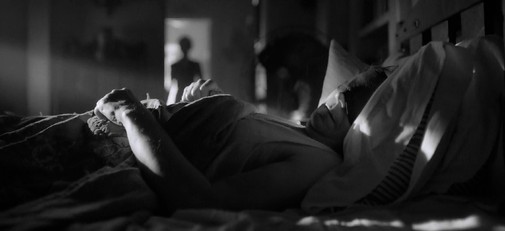
Glancing rapidly at Mank, or even just its trailer, one gets the impression Fincher is trying his hand at an old game of cinematic pastiche. To portray Old Hollywood, the auteur has chosen to mimic the look and feel of classic cinema from the era. At least, that's what one presumes when gazing at the silvery monochrome of the photography, the lavish sets and costumes, the faded sound mix, and digitally added scratches of the filmstock. However, when we care to pay attention, to transcend the glance, and investigate the construction of Mank, its technical specificities go from obvious to puzzling.
You see, Mank isn't 1930s or 1940s pastiche, not really. The first hint we get of this is the aspect ratio, vertiginously wide Cinemascope-adjacent 2.20: 1. It's too big, far too big, to reproduce the type of compositions and visual idioms of cinema when Citizen Kane premiered. The mise-en-scène, instead of hiding that fact, keeps calling attention to it. There are huge swaths of empty space on any given shot, nagging imbalances that hint at a primordial wrongness. Erik Messerchmidt's black-and-white lensing isn't very retro, either.
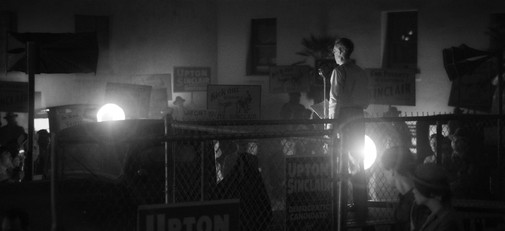
The studio lighting of yore, its perfect chiaroscuro and glowing surfaces, has been replaced by digital sharpness, a metallic tinge that makes even the hot desert sun look cold. There's also a lot of muddy grays, carefully differentiated by the varying tone in a way that's characteristic of digital cinematography, especially during night shoots and dusk-set-scenes. In plain terms, it's shockingly modern filmmaking covered in the pretext of pastiche, a pastiche so flimsy its transparency feels more purposeful than accidental.
These forces pushing and pulling between history and historical romance, between fact and fantasy, old and new, tear through every aspect of the film. The script twists real-life events with as shameless a fervor as any of Old Hollywood's pre-war prestige biopics. Mank is more like Sergeant York or even The Story of Vernon and Irene Castle than Citizen Kane. From the script, those tensions refract through the score by Trent Reznor and Atticus Ross, a melodious animal whose classic sounds are consistently interrupted by bursts of modernism. It's the screenplay's waltzing polarity given tuneful form.
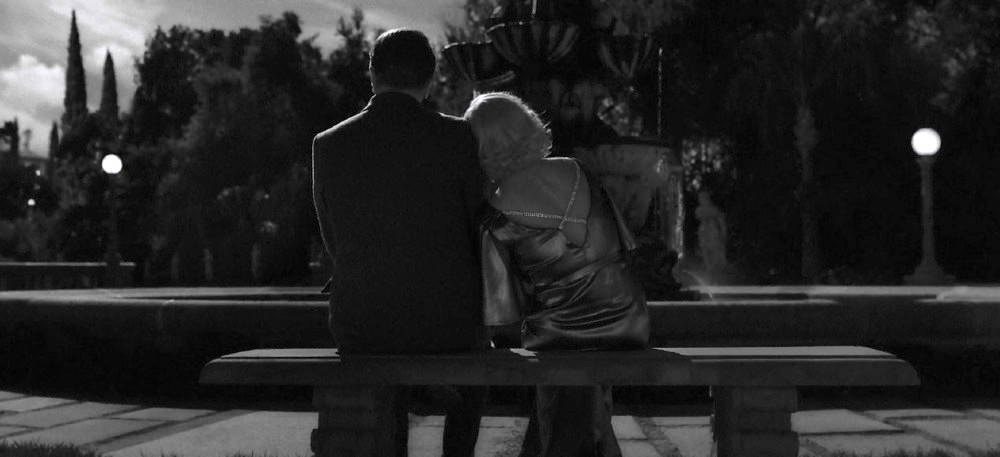
The mix, crisp when showing off the music but pointedly hollow when presenting dialogue, also contributes to this tense alienation born from film mechanisms in an internal fight with themselves. The costumes, designed by Trish Summerville, similarly twirl between history and dream, costuming extras in period-accurate attire and then presenting Orson Welles as a ghost from the 1970s, an apparition straight off F for Fake. In one scene, Marion Davies may look like a hostess in ravishing, but not costume-y, evening wear. Then, a couple of minutes after, she's donned in a facsimile of her Blondie of the Follies glamour.
The less generous might conclude that Mank is a messy, inconsistent, minor effort from Fincher. But I found Mank's tense oddities fascinating, even if they were accidental. Before you say this has more to do with Fincher's reputation than Mank's real merits, consider that I'd say that the movie's closest 2020 sibling is Claire Oakley's Make Up. In that film, the first-time director makes use of similar antagonistic impulses in the formal construction, colliding horror movie idioms with a story of romantic coming-of-age. As with Mank, the result of the experiment is unstable and often infuriating, but hard to shake.



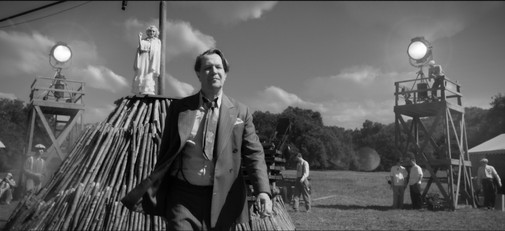
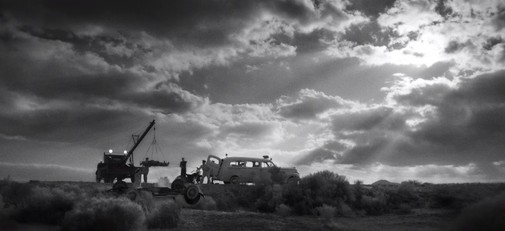
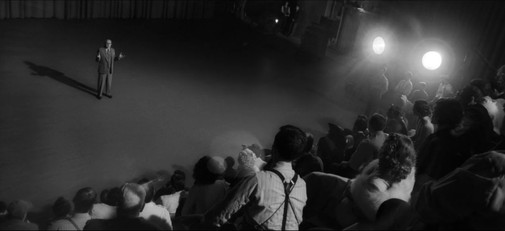
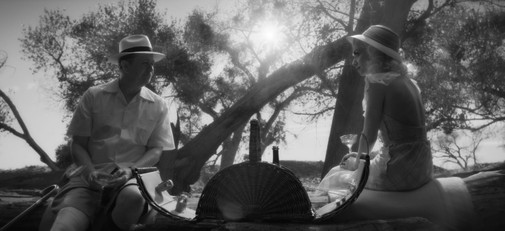
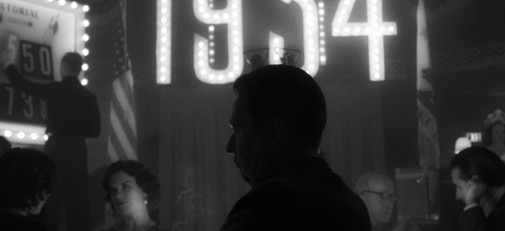
Reader Comments (14)
I snoozed a couple times which means I will have to watch it again in 2021.
Cláudio, I see what you mean about it being hard to shake off. I saw it in the cinema and I'm not sure if I liked it or not, but I can't stop thinking about it and will be happy to rewatch it on Netflix.
I too was led to believe (from the trailer and the advance word) that it was going to be a 1940s pastiche. So I'm glad you pointed out the aspects of the film, like the cinematography, that very much do NOT feel of the period.
I can't wait to watch it again. (But first: Sound of Metal, The Prom and The 40-Year Old Version.) As I said in another thread, I loved every minute of it. And you've articulated one of the reasons why in this article:
For me Mank was one of those movies I forgot about as soon as it was over. It didn’t linger. It didn’t make an impression. I liked Marion Davies. Some of the shots were nice. That’s it.
Claudio, nicely written as always, but I need to argue. The "updated" approach from Messerschmidt is what makes the cinematography interesting to me. He could have just reproduced it, but why when there we've had the "advancements" in camera technology? He succeeds at exactly what you proffer, which is paying homage to the style and textures, but with a contemporary spin that keeps it from merely aping. It reminded me of what Pawel Pawelkowski and his cinematographer did for his films IDA and COLD WAR...they pay homage to classic 60s Eastern European filmmaking, but in a revitalized and reconceptualized manner. All three films (MANK, IDA, and COLD WAR) are artful exactly because they are reinterpretations of "classical" filmmaking. I wanted to "connect" to MANK in a more powerful way, but what I did love about it was the "spin" on all things 40s/Kane/classical...everything rethought in contemporary, exciting terms by Fincher, but still paying beautiful respect.
Working stiff -- Glad you enjoyed it so much. I wish I could love it like that.
Ashley -- I really liked Seyfried's Marion Davies and hope more people watch the Old Hollywood star's movies, She was a great comedienne.
EricB -- Maybe I was a bit confusing in the write-up (I did pretty much vomit these thoughts onto the keyboard in record time without even pitching this thing), but I do think the avoidance of perfect imitation makes it more interesting. I found the cinematography fascinating because of its contradictions and wouldn't trade it for an accurate pastiche.
Thank you all for the feedback.
I was bored to death while watching it, annoyed by Fincher’s obsession to recreate the period (the flat sound is interesting, but the digitally enhanced scratches and burns “on celluloid” looks like a cheap and unnecessary oddity). Some days later it grown up better on my mind. Hands down: Gary Oldman is AMAZING and Amanda Seyfried elevates the experience when she’s on the scene with that glowing translucent beauty (I think she’s right and ready for an Oscar nom).
For the love of Cold War, please let's not give it all the Best Cinematography awards just because it's in black and white.
Looked great, Seyfried and Oldman really embodied the characters without making them cartoons. But the movie overall was dead boring to me and it'd be a real shame if it won BP.
It would be funny if they gave the Oscar for an average film about Citizen Kane, when THE MASTERPIECE was there and was ignored.
What did Seyfried do to earn so much Oscar notice?????
Once the movie was over, I could not even remember what I had just seen!
You seem to suggest this aesthetic was accidental? Coming from as meticulous an artist as David Fincher? Or am I misunderstanding you? I think the formal tensions you highlight are part of the larger point in a movie all about conflicts between fact and fiction, politics and entertainment, "reality" and representation. Really enjoyed this flick.
Jonathan -- That was not my intention. When I wrote "a pastiche so flimsy its transparency feels more purposeful than accidental" I was trying to imply this is too calculated to ever be an accident. To me, it felt like a purposeful, though risky, bit of stylistic alchemy.
The best thing about this movie was Amanda Seyfried as Marion Davis the movie should have been about her. She was more interesting than Mank. Yes it's fabulous looking film and perfectly recreates the Hollywood of that era but at the end I really did not care- but Seyfried as Marion was glorious and should get an Oscar nomination